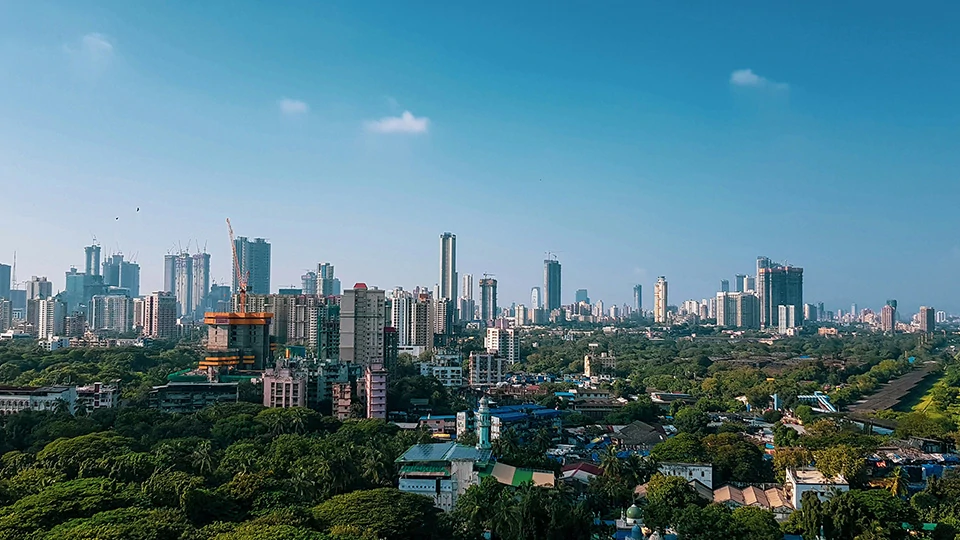In this short interview, GIZ-India introduces their collaborative agrivoltaics pilot in Nashik, Maharashtra, specifically designed to grow grapes and citrus fruits, and explains why it is critical to test FPO-forward models and directly engage farmers.
What is your vision for this pilot?
The primary objective of the pilot site – DeveloPPP for Agrivoltaics – run by GIZ, India in partnership with SunSeed APV and Kanoda Energy Systems, is to generate awareness and evidence for successful implementation of agrivoltaics in India. By generating region-specific data, the project also aims to generate economic and ecological benefits of agrivoltaics that can simultaneously benefit farmers and provide returns to investors.

Source: From the pilot run by GIZ, India, Sunseed APV, and Kanoda Energy Systems.
What is unique about your model?
The 250 kW agrivoltaics plant integrates solar energy production with agriculture, specifically designed for growing grapes and citrus fruits. The plant features solar panels mounted 3.5 metres high, equipped with trackers that follow the sun’s movement, ensuring optimal energy capture throughout the day. This elevated setup not only maximises solar power generation but also provides enough space beneath the panels for the crops to grow.
The pilot site also employs extensive instrumentation to support research and development in crop cultivation and solar energy. The research aims to develop scientific approaches for the design and adaptation of agri-PV (agri-photovoltaics) projects, while exploring specific cultivation strategies for agri-PV systems.
Key learnings from this pilot
The project is located in the research campus of India’s biggest FPO Sahyadri Farms in Nashik, Maharashtra. Leveraging Sahyadri Farms’ extensive 3000 farmer network, the project serves as a crucial demonstration site. An FPO-forward model is pivotal for widespread implementation of agrivoltaics plants in India, as it places ownership and management directly within the hands of local farmers.
This structure ensures that the system’s design and operation are intrinsically aligned with agriculture and local expertise, also fostering a sense of shared responsibility. The ownership of the plant with Sahyadri Farms ensures direct market access for the produced grapes, while enhancing farmer incomes. Its success could significantly drive interest and adoption of similar installations among the FPO’s registered farmers.
Key messages for funders looking at this space
From an investor's perspective, adopting a research-driven approach to agrivoltaics helps reduce uncertainty, mitigate risks, and maximise long-term returns. Funding demonstration projects is crucial for generating tangible data and validating the technology's efficiency across diverse agro-climatic zones and business models. In addition, investors should prioritise projects that actively engage farmers from the design stage, ensuring technology aligns with practical agricultural needs. Supporting agriculture-first initiatives fosters sustainable, financially viable solutions, paving the way for scalable agrivoltaics models.
Stay updated about these partners’ work by visiting GIZ – India, SunSeed APV, Kanoda Energy Systems, and Sahyadri Farms.
Want to learn more about funding opportunities for agrivoltaics? Write to us at solutions@indiaclimatecollaborative.org.

Subscribe to our Newsletter
Join ICC's monthly newsletter and read more about uplifting climate narratives, innovative solutions, and other updates.




